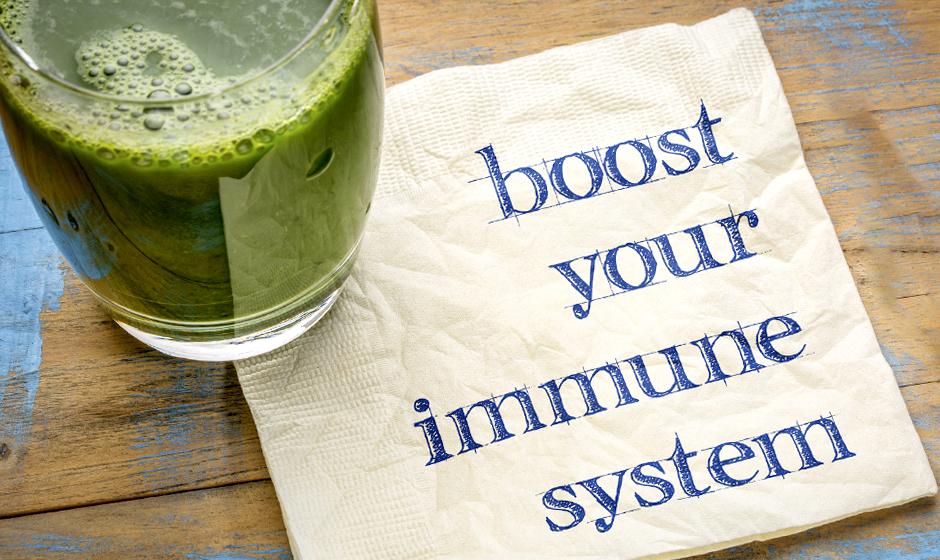
Inflammation is part of the natural aging process, but there are steps you can take to minimize its effects.
People interested in biohacking and other performance- and health-enhancing techniques may want to add evidence-based anti-inflammatory lifestyle approaches to their list. Immunologist and Vancouver Coastal Health Research Institute (VCHRI) researcher, Dr. Jacqueline Quandt, sheds light on the role inflammation plays in the body, and shares lifestyle approaches that can help you keep it under control.
Q: I've heard that inflammation is bad for you, but how and why?
A: Inflammation has a bad reputation, but it actually plays a critical role in the body as a natural response to infection and injury. Cells in the tissue respond within minutes to signal that some type of danger is present. They produce proinflammatory factors that: 1) trigger changes in the blood vessels, 2) increase blood flow to the area and 3) signal the recruitment of immune cells to the site of injury or infection. The cells that arrive early are responsible for cleanup—they eat up damaged or infected cells. Once the infection or injury is cleared, things often go back to the status quo unless there is a situation of chronic inflammation or a trigger of autoimmunity, which can lead to some degree of loss of function.
Q: How can I know if inflammation in my body is out of control?
A: Things can become problematic when the acute pro-inflammatory response does not fully resolve the infection or injury. That is when different immune cells become involved, which are part of a much more sophisticated response. These immune cells can target specific viruses or antibodies, and also help ensure that our immune system is ready the next time it encounters a similar pathogen. While we can let inflammation run its course in some cases, in others we need to address inflammation right away. The latter is true for meningitis, which causes inflammation of the brain’s protective membrane; autoimmune diseases such as multiple sclerosis (MS), which attacks the sheath around the body’s nerve fibers; and severe cases of COVID-19 when the immune system goes into overdrive, causing what is called a cytokine storm.
It is critical to immediately treat any condition that causes inflammation in the brain. Inflammation related to brain injury, cancer or infection triggers glia—support cells for neurons in the brain—to recruit immune cells to protect and repair damaged or infected cells. This can affect how neurons behave and lead to such things as neuroinflammation-related seizures.
Q: Can inflammation make me feel more tired or stressed out?
A: There is evidence to suggest that inflammation can lead to fatigue and influence your overall feeling of well-being, including levels of anxiety. Several studies have also shown that systemic inflammation, such as with a flu, can worsen clinical symptoms of some autoimmune disorders and even neurodegenerative disorders. Medical investigations are needed to get to the root of what may be causing the inflammation and related impact on other conditions.
Q: Are some people more at risk of developing harmful inflammation than others and why?
A: Inflammation is behind many chronic illnesses—such as MS, Crohn’s disease and colitis—and often early intervention is key. For many of these individuals, both genetics and environmental factors are thought to be important. However, it is also true that the natural aging process increases oxidative stress and pro-inflammatory factors, and decreases anti-inflammatory or immunomodulatory factors. This is why it may be helpful to modify our lifestyles to reduce inflammation as we age.
Q: What can I do to reduce preventable inflammation in my body?
A: Discoveries made within the past five to 10 years have greatly enhanced our understanding of inflammation and how to treat and control it, particularly in chronic inflammatory disorders. They have also contributed to trends such as biohacking, in which individuals try to optimize their bodies and health with science-based approaches.
Research shows that getting enough sleep, exercising, maintaining a healthy weight, reducing stress, not smoking and other lifestyle modifications do help keep a better balance in one’s immune system. Diet also plays a key role, with numerous studies suggesting the overall benefits of avoiding high-fat and high-sugar diets; getting enough vitamin D; and eating plenty of antioxidant-rich fruits and vegetables.



